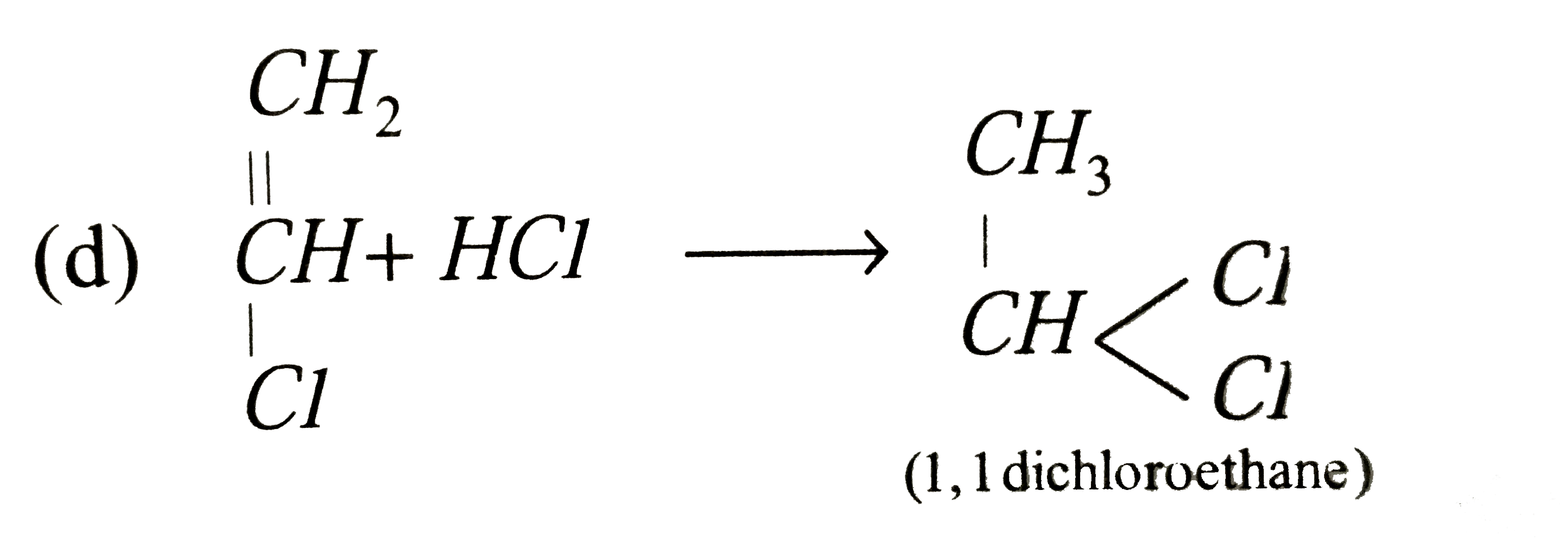Addition of HCl to vinyl chloride gives 1, 1-dichloroethane because of
A
Mesomeric effect of Cl
B
Inductive effect of Cl
C
Restricted rotation around double bond
D
None of these
Video Solution
Text Solution
The correct Answer is:D

It is addition reaction.
Which is according to Markownikoff's rule.
|
Topper's Solved these Questions
- GENERAL ORGANIC CHEMISTRYBOOK - ERRORLESS CHAPTER - GENERAL ORGANIC CHEMISTRYEXERCISE - Structural and stereo isomerism
140 Videos
- GENERAL ORGANIC CHEMISTRYBOOK - ERRORLESS CHAPTER - GENERAL ORGANIC CHEMISTRYEXERCISE - Classification and nomenclature of organic compounds
117 Videos
- GENERAL ORGANIC CHEMISTRYBOOK - ERRORLESS CHAPTER - GENERAL ORGANIC CHEMISTRYEXERCISE - Dipole moment, resonance and reaction intermediates
73 Videos
- GASEOUS STATE BOOK - ERRORLESS CHAPTER - GASEOUS STATE EXERCISE - JEE SECTION JEE (Advanced) 2018 Numeric answer type question
1 Videos
- HALOGEN CONTAINING COMPOUNDBOOK - ERRORLESS CHAPTER - HALOGEN CONTAINING COMPOUNDEXERCISE - Critical Thinking (Jee (Advanced) 2018)
1 Videos
Similar Questions
Knowledge Check
Action of RMgX with vinyl chloride gives
AalkaneBalkyneCalkeneDall of these.Assertion. Addition of HI to vinyl chloride produces -chloro-1-todoethane
Reason. HI adds to vinyl chloride against Markovnikov's ruleAIf both assertion and reason are true, and reason is the true explanation of the assertion.BIf both assertion and reason are true, but reason is not the true explanation of the assertion.CIf assertion is true, but reason is false.DIf both assertion and reason are falseVinyl chloride undergoes
Aonly addition reactionsBonly elimination reactionsCsubstitution reactionsDboth (a) and (b)
